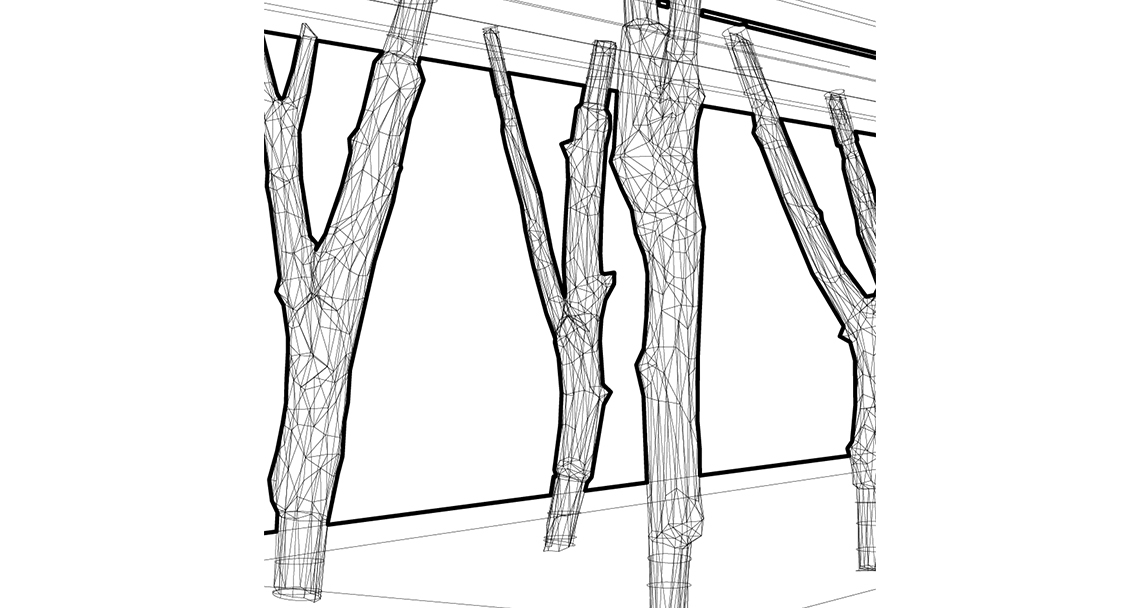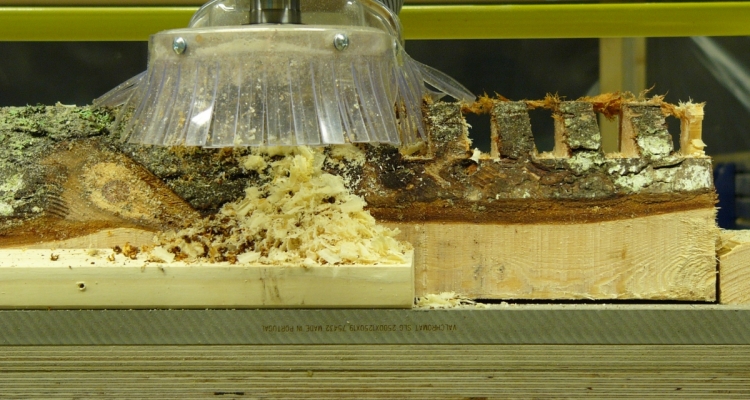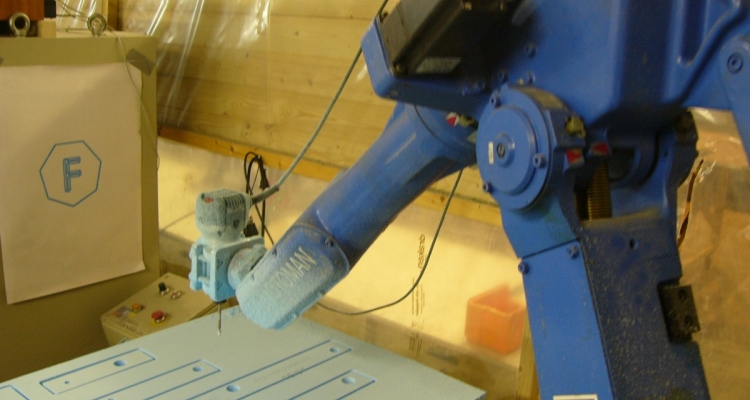A New Conceptualization of Wood
20. May, 2021
Marcin Wojcik defended his PhD thesis "Reframing wood construction. Innovation in architecture through activating material properties with the use of digital technology" at AHO on December 4th, 2020.
By Ane Liavaag Ellefsen
Marcin Wojcik is an architect, researcher, and educator with over 20 years of professional experience. He is a lecturer in the school of architecture at TU Dublin, where he is teaching at the BArch and MArch levels. His academic and professional interests include computational design, digital fabrication, and material-centred design. He holds a Master in Advanced Studies from ETH Zurich (2004) with specialization in Computer Aided Architectural Design, and an MSc in Architecture from Szczecin University of Technology (1996).
Marcin is originally from Poland but has lived abroad since 2002. First in Switzerland and then in Ireland and Norway. He has worked both in practice and academia and was a research fellow at AHO between 2012 and 2016. Today, he is a lecturer in The School of Architecture at TU Dublin.
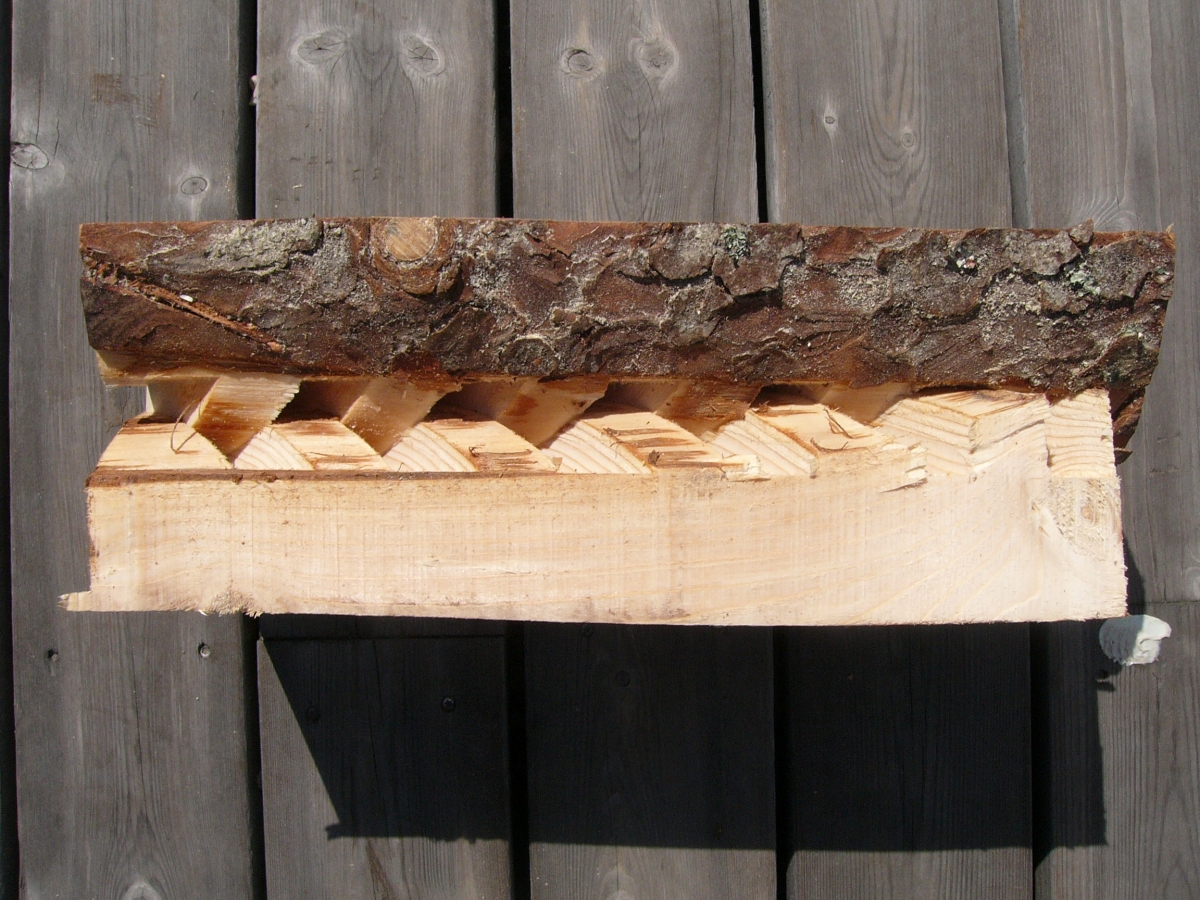
Material-centred design
The PhD position at AHO was related to research on curvilinear timber structures. This was well aligned with his interest and specialisation in technology. “The starting point for my PhD was a question why development in timber technology does not always lead to more energy and material efficient construction? In order to answer this question, I had to look at the wider cultural and theoretical contexts of architectural design. I proposed a “reframing” of wood construction based on a new method of design that I named «material-centred design »”This method is linked to particular properties, traits, and behaviours of materials; and it uses them as an important design factor. One of the primary design goals became harnessing and leveraging these properties. In the first years of his PhD research, he had illustrated this approach with various material experiments that later became a base for theorising.
“The main motivation was to investigate the paradox that I noticed early in my research: technological developments in design methods and timber manufacturing often deliver solutions that use more energy or produce more waste than some low-tech methods. The ultimate goal of the thesis was to reorient architecture towards sustainable construction methods by rethinking the relationship of digital technologies and materiality in design with wood. My thesis proposes that digital technologies have the potential to access various latent and palpable potentialities of the material that can deliver design solutions with lower environmental impact.”
Sustainable construction methods 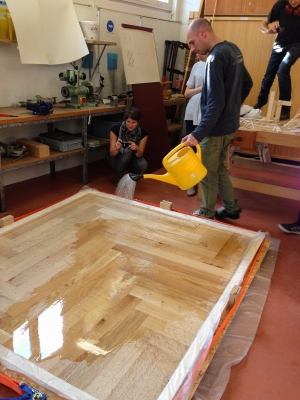
Marcin’s thesis makes a contribution to architecture and design theory. The central hypothesis is that material perspective is countercultural to mainstream architectural theory and practice. The thesis proposes a new conceptualisation of wood, one in which it is no longer seen as a “passive material”, but where its individual properties and behaviours actively take part in the generative processes.“It is possible to apply various elements of the thesis to my activities. In the most general sense, it changed my understanding of architectural design. After completing the thesis, I include the material-centred perspective in solving design problems. This affects both my teaching and design thinking. It is also possible to use the thesis’ framework for my further research, both into digital technology and design theory. At a more direct level, I can use the material experiments done early in the thesis development as starting points for various technological ideas that deliver products with minimal environmental impact.”
Marcin is now back to his lecturing position at TU Dublin. Together with various colleagues and partners, he is looking for research grants that would allow for multidisciplinary and long-term projects.
The thesis "Reframing wood construction. Innovation in architecture through activating material properties with the use of digital technology" is available here.
